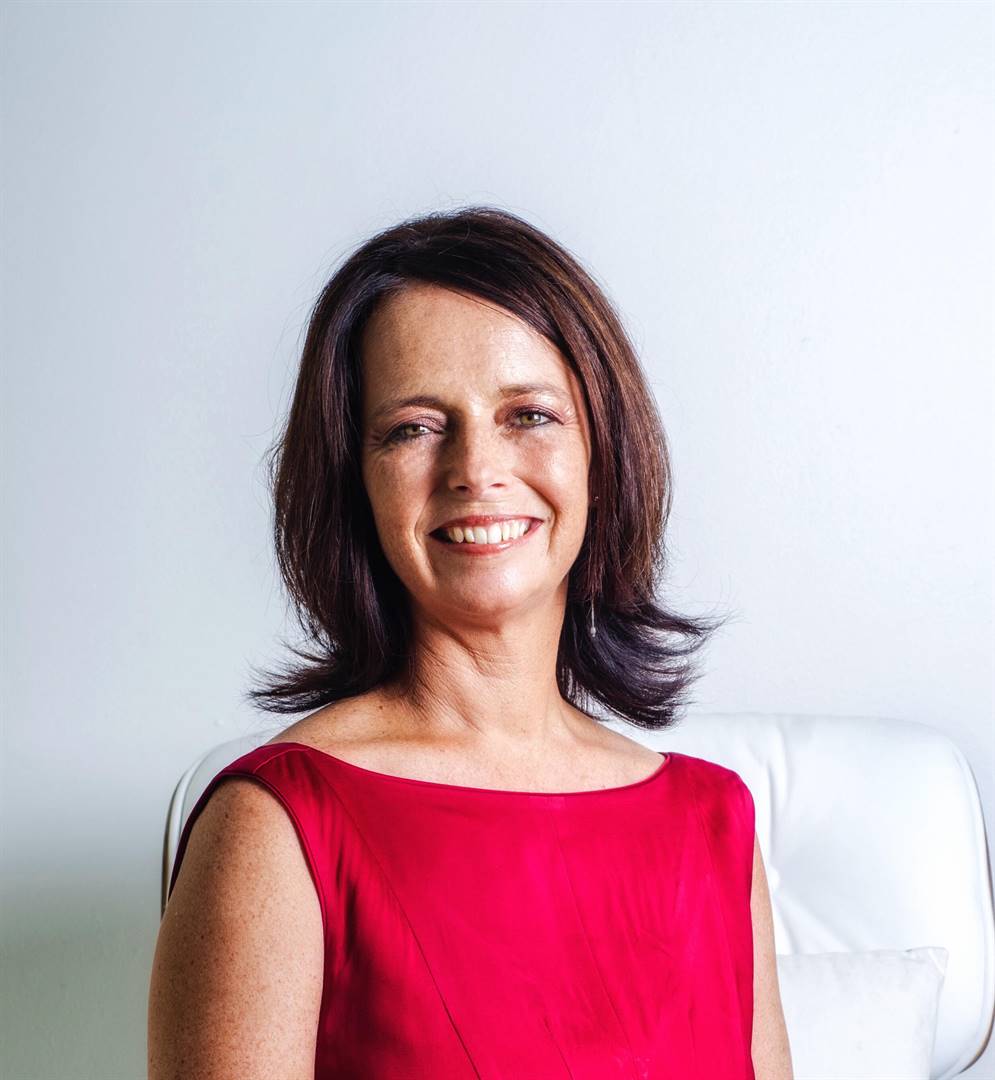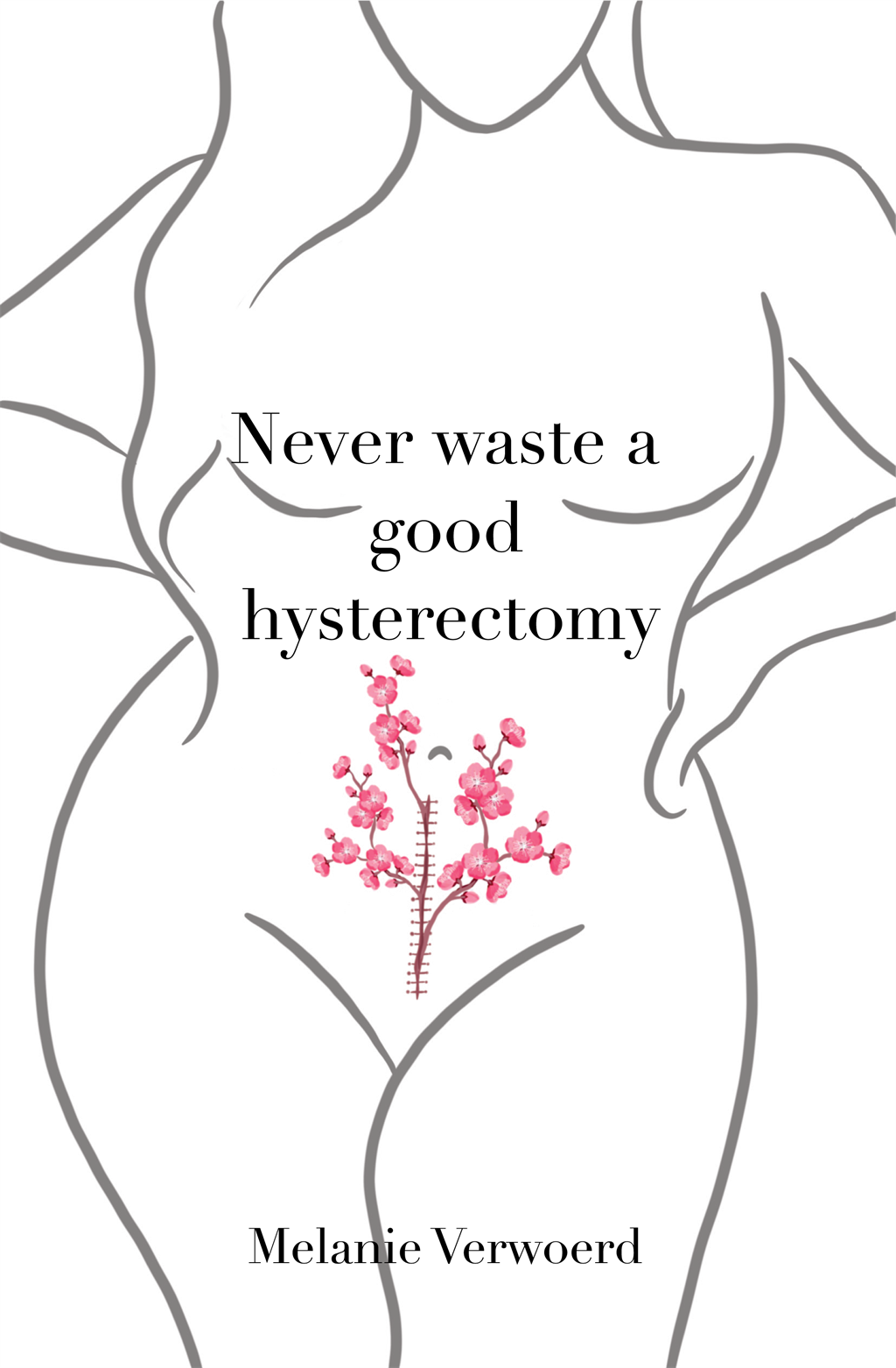
BOOK: Never Waste a Good Hysterectomy by Melanie Verwoerd
Hysterectomies affect millions of women of all ages. Yet, receives almost no attention. A newly released book and podcast by Melanie Verwoerd titled, Never Waste a Good Hysterectomy aims to break this cycle of silence. In this excerpt, When Dam Walls Collapse, Verwoerd shares more about the visit to her gynaecologist that would put her on an unexpected and lifechanging journey.
“What’s going on here?”
My usually chatty gynaecologist had suddenly gone quiet and was leaning closer to the ultrasound screen. I watched her face as she zoomed into the images.
“Do you have any pain?” she asked. “No, nothing!” I said firmly, thinking that it would negate whatever she was seeing on the shadowy images of my organs. From the way her frown deepened it was clearly not the answer she was hoping for.
A feeling of foreboding started to vibrate deep in my stomach – the second time today.
“I’m going for my regular gynae visit,” I had told my daughter earlier. “Say hallo!” she said cheerfully, since we shared the same gynaecologist. Thinking about the upcoming visit, I was suddenly overwhelmed by a sense of dread. It surprised me. I don’t mind going to the gynaecologist. I have been making these annual visits like a faithful pilgrim since I was 17 – which means at least 37 visits. Added to that a number of extra pap smears when I got abnormal test results for a few years, the removal of two Bartholin’s cysts and the births of my two children – hell, my vagina was almost public property.
I had pushed the negative thoughts aside, putting it down to a lack of social engagement during COVID, but lying with my legs in stirrups while the gynaecologist was moving the probe around, it felt like I was standing next to a high dam wall watching big cracks forming.
“I need you to go up to the pathologists for a CA125 test,” the gynaecologist said. “Now?” I asked.
“Yes.” A weird kindness had crept into her voice. “What are we testing for?” I asked.
“Cancer,” she replied.
The dam wall started to crumble.
“A CA 125 test may be used to look for early signs of ovarian cancer,” I read on my phone as I waited for the lift to arrive. The article went on to describe the five-year survival rates for ovarian cancer. It was shocking.
“I won’t have cancer,” I tried to console myself. “I am too healthy”.
However, by the time the lift doors had opened two floors up, my world had changed. The article I was planning to write seemed trite, I couldn’t care less about my clients’ anxieties, about the current political drama, and the domestic chores I had on my lists were forgotten.
“I might have cancer,” was all I could think.
I recognised the phlebotomist from a cholesterol test ten months before. We talked about her having had COVID a second time since I had seen her last. “How are you?” she asked. I felt tears welling up.
“I’m a bit freaked out to be honest.”
She glanced over at the form with the codes for the various tests. I saw her eyes widening slightly. “Try not to worry too much. It might be nothing,” she said with the same weird tone of kindness in her voice.
The next day the results were back. The tumour markers were elevated.
“Don’t start planning your funeral yet,” a medical cousin said, “it could just be a cyst, but they will have to do more tests”.
While listening to him, I thought of the story of the little boy trying to stop the dam wall from collapsing with his finger.
The gynaecologist called two days later to say that she had spoken to a gynaecological oncologist. He was going on holiday but would see me in two weeks. She also mentioned that he was certain that a hysterectomy would be necessary.
My head started to spin. “Why an oncologist? Surely they don’t know that I have cancer. Or do they? Surgery? Hysterectomy? I have to wait for two weeks to know more?”
Through my anxiety I felt an anger rising. This man (!) had already decided to do a hysterectomy without even having seen me or doing further tests. Surely there should be a few steps before just cutting into me and removing... I wasn’t even sure what they would remove.
I felt like I was on a roller coaster picking up speed – it was terrifying and there was no way of getting off.
I needed to think, to regain a sense of control.
The next day I phoned my daughter’s surgeon in Cape Town. He was a brilliant doctor and like my friend Elaine an extraordinary compassionate person.
He agreed that a CT scan was necessary.
The radiologist kindly tried to distract me with a political discussion. It worked for a few minutes, but then she left the room and the terror returned as I held my breath while my body was pushed through the machine. As I left, I peeked into the control room where two women were looking at the images of my pelvis. “Please give me good news,” I pleaded – hoping that my request could change the outcome.
The surgeon called 30 minutes later. There was some good and some bad news. There were no signs of any spreading, but there was a growth, and it was huge – bigger than initially thought.
“It has to be removed, or it will start putting pressure on other organs. Frankly, I’m surprised that you haven’t had more discomfort,” he said gently.
After the call, I wondered if I had missed anything. I had for the previous two months felt some bladder discomfort. My GP ruled out a urinary tract infection and suggested that it might be linked to menopause – the go-to for everything at my age it, seems. She prescribed an oestrogen cream which had given me some relief, but from time to time there had still been a dull pain low down on my right side. Was that it?
My daughter’s surgeon referred me to another doctor who specialised in ovarian issues. Sitting in the waiting room, I felt like an imposter. He was part of a bigger fertility practice, and the place was filled with young couples full of hope. I was not only about three decades older, but I was on my own, as instructed by the receptionist on account of COVID.
Another internal ultrasound was needed. I tried to ignore the discomfort by focussing on the bit of the specialist’s face visible above his face mask. I could see his frown deepen as he moved the probe deeper and in different directions. It hurt. He apologised. He did an internal exam with his fingers. It hurt. He apologised. He went back to the ultrasound again. By now my legs were shaking violently. I felt cold and sore, and the terror was growing.
“I’m not sure, but I think there is a second tumour, and I see some free-flowing fluid. We don’t like to see that,” he said as he pointed to the dark images on the ultrasound.
The dam wall started to collapse.
“How did they not see it on the CT scan?” I asked.
“They sometimes miss things, depending on how you were lying. In any case, I would do you a disservice if I operate on you. You need to go and see a gynaecological oncologist – the best one in town”.
Sitting across from him, I felt nauseous with panic. Things had now moved from “I might have cancer” to “I most probably have cancer.”
Walking to my car, I felt my legs buckle.
“I really want to live to see my grandchildren,” was all I could think as I sobbed while driving home.
19 May, 14:30, Council Chambers
Michele Magwood in discussion with former MP and diplomat Melanie Verwoerd about her compelling memoir Never Waste a Good Hysterectomy – a raw, frank and hopeful account of her operation and its surprising emotional aftermath.
The next day, Prof Hennie Botha, head of gynaecological oncology at Stellenbosch University, saw me. By now it was clear that surgery was going to be required, the only question was by whom and what would be removed.
I also knew that I needed to trust and like the person who was going to cut into me. “If I don’t like this guy, I reserve the right to look for someone else,” I said to a friend before the appointment.
Luckily, I immediately liked the Professor. We had been at Stellenbosch University at the same time. We shared similar historical reference points, and I knew his cousins. Even though I have no deep attachment to Afrikaans, it was strangely comforting that he spoke in my mother tongue.
“I’m usually very mind over matter, but I feel like my dog when there is a thunderstorm,” I opened up to him. “I’m frantically trying to find a place to hide to make this go away, but everywhere I go, it is still there.”
After another ultrasound – this time thankfully an external one – he took my hand and pressed it next to my bellybutton. There it was – the thing that had quietly grown in me during the last 12 months. (There had been no sign of any abnormality during my previous gynaecological visit).
After I got dressed, he showed me the images of the CT scan. My jaw dropped. “All of that?” I whispered, looking at the huge white circle crowding out other organs.
Prof Botha gently explained my options, but also did not mince his words. The chance of the growth being cancerous was at least 70%.
“You don’t have to use me, but it has to come out and soon,” he said.
“Are you good?” I asked while monitoring his reaction closely. He paused, thought for a few seconds and then calmly looked me in the eyes.
“Yes, I am good.”
Two days later he held my hand as the general anaesthetic took effect and 90 minutes later, he again squeezed my hand as he assured me that all had gone well. He had taken out the growth – all 9 cm in diameter and 190 grams of it. I was now also without a cervix, ovaries, uterus and omentum (the lining that protects our digestive system where cancer cells like to “hide”.)
The final verdict on whether it was cancer would take a few days...




 Publications
Publications
 Partners
Partners












